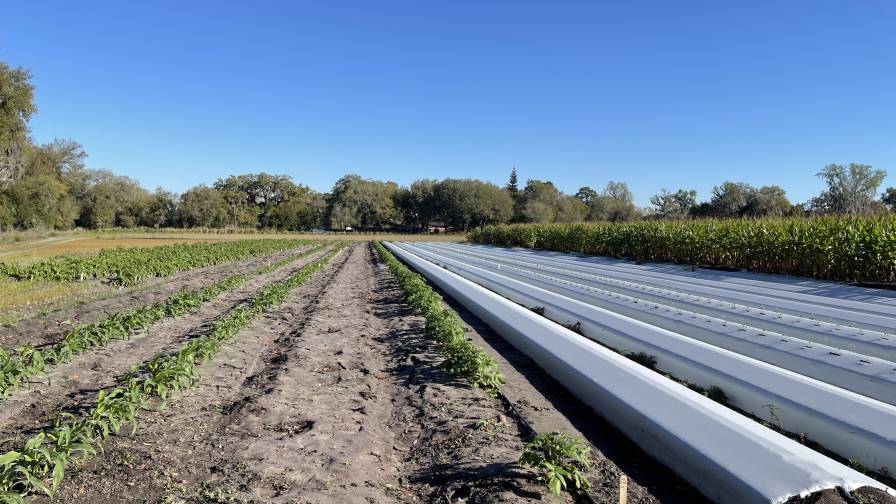Farmland Investment: Path to a Stable Future
If anything, the past year of uncertainty has shown that financial stability via longer-term assets should take center stage as we plan for recovery. Disruptions and a shaken economy mean investors must reassess their investment portfolios to help weather future disturbances by way of an asset class that is a hedge against inflation. This is not the last time the economy will see a downturn. So, the question is “what does it take for an investor to build a dependable portfolio capable of generating consistent returns regardless of conditions?”
A Better View of the Investment
The high demand for agricultural resources throughout the pandemic should remain top-of-mind as investors consider how to navigate rising inflation and a new normal. Due to the resilient nature of the industry, we are seeing an increased number of people acquiring productive farmland as part of their investment portfolio.
Farmland has not been an asset class widely known about by the general public. More recently, the potential of farmland has been recognized by many publications – with most well-known being The Land Report highlighting Bill and Melinda Gates’ estimated 242,000 acres of farmland, the largest portfolio of private farmland in the U.S. This particular headline has attracted significant attention. In the first half of 2021, productive farmland values increased between 10%-25% since 2020 depending on the area. The high demand comes from low interest rates, higher commodity prices, government stimulus money and more media attention. The increased buying power has contributed to the appreciated value.
The enduring value of farmland can give investors an opportunity to protect and grow their wealth. The returns come in two forms — increase in farmland values and cash rent. Investors, new or old, have an option to choose to be either active or passive in the rent structure. In addition to the flexibility, farmland has low volatility compared to other asset classes. Farmland is also an appreciating asset that provides an annual return, it has been described as “gold with a coupon.”
In terms of timing, there is no “best time” to invest. Farmland can be purchased at any point during the year; however, inventory tends to be the highest in Q1 and Q4 when the farms are not in production. This unique asset class works for many types of different investors. Farmland can be bought and sold relatively quickly compared to other fixed asset classes, so it can fit people who are concerned about the cash liquidity. The yearly return comes from the cash rent. For example, retired investors can get significant amount of money depending on the size of the farm that can be used for living expenses.
Getting It Right
Farmland investment is difficult to navigate. Knowledge about farmland investment alone isn’t the path to financial stability — it’s also critical to have a methodical approach to executing that investment and managing its growth. Farmland investment has gained much popularity in recent years; however, the real dynamics of the industry are not understood by many. It’s not just a matter of having adequate capital, but more about having the industry-specific skillset, network, and culture to be a successful farmland investor.
Professional advisors can help investors navigate the challenges associated with farmland management and the high barriers to entry of acquiring and overseeing the land. By getting exclusive access to deals and learning about investment grade land, investors can enjoy benefits that would be difficult to attain on their own. Moreover, specialized industry advisors can help first time investors discuss goals and expectations with their seasoned perspective. What makes the role of professional advisors even more integral is that that investment grade farmland is not easily available to outsiders. Investors need trusted strategies and connections, meticulous negotiations, and diligent management plans based on their specific needs and portfolio objectives to make the best choices.
Even though stability is the key attraction in farmland investments, it’s definitely not devoid of risk when done on your own. Investment advisors serve as consultants to avoid pitfalls and help clients identify their financial objectives. Most importantly, professional advisors work on optimizing returns and sustainability goals by leveraging their experience, expertise, and vast network tenants.
Having a stable and low volatile investment can be a source of major relief during these disruptive times. Navigating these unfamiliar territories on your own can be a huge a risk itself. The best approach is to get in touch with a professional farmland investment company to leverage on their resources and insider knowledge. The ultimate goal is to grow and protect wealth by investing directly into American farmland. Farmland investments can be surefire ways for predictable returns, but only under the right guidance. It’s a significant capital investment, and you need reliable hands to ensure benefits for yourself, your family, and the growing population around the world.






